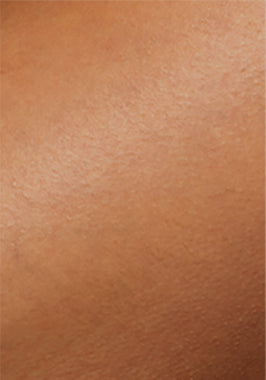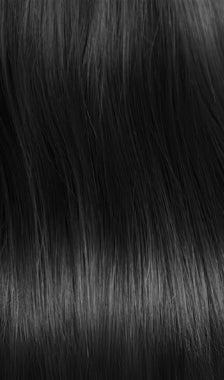Although it is rare, some women grow hair like men. That is, they grow hair on their face, chest, legs, and even hands. While hair growth may appear very minimal in some women, it may be very pronounced in others. This is usually caused by high levels of androgens, particularly testosterone.
For some women, this is a big problem, which is why they resort to various methods to remove hair and even prevent it from growing back. In addition, some women want a permanent solution to hair growth on their body. Unfortunately, waxing, shaving, etc. only offer a short-term solution. That's why they need a permanent solution.
One of the many methods is laser hair removal 1 . This technique has gained quite massive traction in today's world and is preferred for its effectiveness in removal as it has been proven to achieve up to 95% reduction in hair growth. This simply means that you no longer need to shave or wax 2 .

Although laser hair removal is a very popular method, many women still have questions about how it works and what its benefits are. One of the most common questions is: “ Can I have laser hair removal during my period? ” Like any other hair removal method, laser hair removal has its pros and cons and there are some important things to consider.
That's why in this article we'll talk in detail about laser hair removal, its benefits, preparation, side effects , aftercare, and provide answers to some frequently asked questions. Let's get straight to the point.
Table of contents:- Part 1: What is laser hair removal?
- Part 2: How does laser hair removal work?
- Part 3: Benefits and things to know about laser hair removal
- Part 4: How to Prepare for Laser Hair Removal
- Part 5: Frequently Asked Questions
- Part 6: Side effects
- Part 7: Aftercare
- Part 8: Conclusion
What is laser hair removal?
Put simply, laser hair removal focuses the wavelength of light on the hair pigment melanin 3. This is a very efficient method for removing hair on the body and face. The purpose of the light wavelength is to damage the hair follicles by absorbing energy into the pigment. The result is long-term prevention of hair growth.
So let’s take a look at what actually happens during laser hair removal.

How does laser hair removal work?
Laser hair removal works through a phenomenon called selective photothermolysis 4 . Basically, the laser chooses what it wants to target based on the specific settings. The laser head produces a sufficient wavelength and pulse for a duration long enough to achieve the desired result. The target is the hair pigment.
Once the wavelength is generated, the light energy travels through the hair to the follicle, where it is converted into heat energy and damages the follicles 4 . The heat cuts off the blood vessels that supply the follicles. Let's get to the point: if a machine doesn't get fuel, it can't function, and if a plant isn't watered, it dries up. That's exactly what happens. Once the wavelength is delivered, it stops the follicles from producing new strands of hair. Do you get the gist now?
Let us now look at some of the benefits that result from this.
Advantages and useful information about laser hair removal
The most obvious benefit of laser hair removal is that it offers a permanent solution to unwanted hair growth. This means that after a laser treatment, you don't have to worry about waxing or shaving. At least not for a long time. So if you're a busy guy and you're looking for a permanent solution to unwanted hair growth, this is your best option 5 .
However, laser hair removal works better on people with lighter skin and darker hair. For people with blonde hair, the laser technique may not be very effective because there is little pigment in the hair follicles for the wavelength to act on 6 . And as we have already established, the pigment is the main target of the laser wavelength.
There are devices specifically designed for people with light hair or dark skin, such as diode or Nd-Yag 7 . Be careful before you rush into laser hair removal, as using the wrong type of device can cause skin discoloration.

For example, if you have dark skin, you should avoid IPL (intense pulsed light) treatment. The reason for this is that people with darker skin have more pigment around their follicles that can be destroyed by the laser. Therefore, these people are more prone to hyper- or hypopigmentation 8 .
We are not saying that people with darker skin cannot undergo laser hair removal. Instead, precautions must be taken very seriously and in fact, visiting a certified dermatologist is the best option. They will examine your skin type and choose the most suitable laser for your skin.
How to Prepare for Laser Hair Removal
So you've consulted with an expert and made an appointment, how do you prepare ?
- Shaving : You will need to shave the area to be lasered at night or the morning of the session. You may also need to take a painkiller about 30 minutes before the treatment.
- Avoid tanning cream: You should also avoid self-tanning creams before and after your treatment. Some medications may even need to be stopped to avoid unwanted side effects. Therefore, inform your doctor about the medications you are currently taking.
- Avoid skin care products: On the day of your appointment, you should not apply any products to your skin. Products like lotions, oils, deodorants, etc. should be completely avoided. Also ask the practitioner about other things you should avoid.
You should also be prepared for a little pain. The IPL hitting your skin can be a little painful. Although some devices can do this better, it cannot be ruled out.
Be sure to check with your doctor regularly to see what else you should do and know before going to such an appointment.
Frequently Asked Questions
Let’s answer some of the frequently asked questions about laser hair removal.
Can I go to a session during my period?
Yes, you can. Laser hair removal will not affect your period, especially if you are not removing hair from your bikini area. The only thing you need to worry about is removing hair from your genital area. The session can be more painful than it should be, and some patients may even be sensitive to the laser device.
Some common reactions to laser hair removal during this period include redness, swelling, pain, etc., which may take some time to subside. However, pain varies from person to person. While some people's pain is very severe, others may find it minimal. It all depends on your pain threshold 9 . So, if you have a very low pain threshold, you may want to reschedule your appointment until after your period, especially if you are removing hair from the genital area.
Apart from these reactions, laser hair removal does not negatively affect your menstrual cycle, contrary to popular belief that your hormone levels will rise and your periods will become irregular.
If you have your period, it will not affect the effectiveness of the procedure and there will be no serious complications.

Can anyone undergo laser hair removal?
First of all, anyone can undergo laser hair removal, regardless of skin color, hair, gender, age, etc. As with any other technique, there are contraindications and precautions that must be avoided, as we have already briefly discussed above.
The most common precautions relate to exposure to the sun, etc. For example, as mentioned above, patients should avoid tanning before treatment. This does not mean that you cannot go out in the summer, but avoid tanning 10 .
Although patients with fair skin are ideal for laser hair removal, anyone can undergo the procedure. People with fair skin are preferred because it makes it easier for the laser to distinguish between hair and skin. The sharper the contrast, the easier it is for the device to target the hair pigment.
Thanks to technological advancements, this method is now available to all people with different skin tones. Just make sure you go to a professional for proper and effective hair removal.
The energy intensity of the technique is strong enough to penetrate the dermis to the hair follicle without melanin. Therefore, your hair and skin color is not an obstacle.
However, due to the lack of pigment, people with white or gray hair cannot undergo laser hair removal 11. Also, pregnant women are not a suitable candidate for laser hair removal. Finally, you should not perform a session on the face immediately after the glycolic acid peel.
Apart from the facts mentioned, laser hair removal is safe and effective for everyone, even when you are on your period.

When is the best time for laser hair removal?
Although laser hair removal can be done at any time, the ideal time is in winter when the chances of exposure to sunlight are low. If you start the treatment in winter, you will be hair-free by summer.
The best time for this procedure is therefore in the winter months when the weather is cool and favorable.
side effects
The side effects are minimal if you take the necessary precautions and avoid contraindications. The first is that you should not expose yourself to the sun before the treatment. Laser hair removal on a body that has recently been exposed to the sun can cause hyperpigmentation, burns and even scarring. For this reason, it is recommended to perform the treatment in autumn or winter.
So if you have already made an appointment, you should avoid tanning for at least a week before and after your session to ensure the integrity of your skin.
aftercare
Laser hair removal is not a one-time procedure. It is done over a six-month period with regular appointments (usually every four to six weeks) to ensure effective treatment. You can start seeing results after the first session, as it takes a week for hair to fall out.
Avoiding sun exposure and exfoliating with a sugar scrub in the shower can speed up the process and produce better results.
Conclusion
Laser technology is an effective method of hair removal. It offers a long-lasting solution with minimal side effects. And of course, it does not affect your menstrual cycle. You can undergo the procedure when you have your period, although it may be a bit painful.
references
- Gan, SD, & Graber, EM (2013). Laser hair removal: a review. Dermatologic surgery: official publication for American Society for Dermatologic Surgery [et al.], 39(6), 823–838. https://doi.org/10.1111/dsu.12116
- Hendricks, K., Nxumalo, CT, Makgobole, MU, Ghuman, S., Jacobs, D., & Mpofana, N. (2023). Evaluating the effectiveness of laser hair reduction using a home use laser in comparison to a diode laser. PloS one, 18(5), e0286162. https://doi.org/10.1371/journal.pone.0286162
- Bhat, Y. J., Bashir, S., Nabi, N., & Hassan, I. (2020). Laser Treatment in Hirsutism: An Update. Dermatology practical & conceptual, 10(2), e2020048. https://doi.org/10.5826/dpc.1002a48
- Patil, UA, & Dhami, LD (2008). Overview of lasers. Indian journal of plastic surgery: official publication of the Association of Plastic Surgeons of India, 41(Suppl), S101–S113.
- Vaidya T, Hohman MH, Kumar D D. Laser Hair Removal. [Updated 2023 Mar 1]. In: StatPearls [Internet]. Treasure Island (FL): StatPearls Publishing; 2023 Jan-. Available from: https://www.ncbi.nlm.nih.gov/books/NBK507861/
- Goldberg DJ (2012). Current trends in intense pulsed light. The Journal of clinical and aesthetic dermatology, 5(6), 45-53.
- Mustafa, FH, Jaafar, MS, Ismail, AH, & Mutter, KN (2014). Comparison of Alexandrite and Diode Lasers for Hair Removal in Dark and Medium Skin: Which is Better?. Journal of lasers in medical sciences, 5(4), 188–193.
- Gade A, Vasile GF, Rubenstein R. Intense Pulsed Light (IPL) Therapy. [Updated 2023 Apr 10]. In: StatPearls [Internet]. Treasure Island (FL): StatPearls Publishing; 2023 Jan-. Available from: https://www.ncbi.nlm.nih.gov/books/NBK580525/
- Atta-Motte, M., & Załęska, I. (2020). Diode Laser 805 Hair Removal Side Effects in Groups of Various Ethnicities – Cohort Study Results. Journal of lasers in medical sciences, 11(2), 132–137. https://doi.org/10.34172/jlms.2020.23
- Goel, A., & Rai, K. (2022). Methods to Overcome Poor Response and Challenges of Facial Laser Hair Reduction. The Journal of clinical and aesthetic dermatology, 15(6), 38–41.
- Gupta, J., Chouhan, K., Kumar, A., & Ariganesh, C. (2016). White Hair Removal with Follicular Unit Extraction. Journal of cutaneous and aesthetic surgery, 9(3), 209–210. https://doi.org/10.4103/0974-2077.191642
























